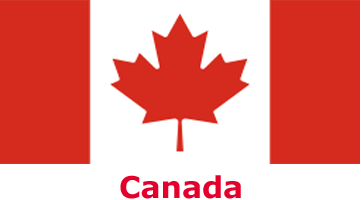
Higher Education Opportunities: UK
The United Kingdom, renowned for its long-standing tradition of higher education, continues to attract students and professionals from around the globe, including India. Universities with roots dating back to the 11th century maintain their esteemed reputation in advanced education and research. In 2009, Cambridge University, among the UK's foremost institutions, commemorated its 800th anniversary. Over the years, the UK has remained a preferred destination for Indian students and job seekers, serving as a cornerstone of their educational pursuits. As such, it stands as one of the primary countries Indian students historically relied upon for their academic endeavours. Now, let's delve into the myriad of higher education opportunities available within the UK.
Primary Information
The United Kingdom of Great Britain and Northern Ireland, commonly known as the United Kingdom (UK) or Britain, is a group of islands in Northwestern Europe. Great Britain comprising of England, Scotland, and Wales, along with Northern Ireland forms the United Kingdom. The United Kingdom is a constitutional monarchy and parliamentary democracy. The UK has around 67 million people. Most, about eighty per cent, are white Britishers. But there are also Asians and people of Black ethnicity. Among Asians, Indians are the biggest ethnic group, making up over three per cent of the population. Indians are also the largest non-white ethnic group in the UK. The UK has the world's sixth-largest economy by nominal gross domestic product (GDP), and the ninth-largest by purchasing power parity.
- Capital: London
- Language: English
- Currency: Pound sterling[f] (GBP)
- Population: 67,026,292 (Year 2021)
- Density: 276/km2
- GDP PPP Total $3.872 trillion (2023)
- GDP PPP Percapita: $56,836
Why the UK?
For many years, the UK has been a favourite destination for Indian students. After Canada, the United States, and Australia, most students select the UK. There are several reasons for this. First off, there's the post-study period. After finishing their studies, students can stay and work in the UK. This was made easier in 2021 with the introduction of a new system called the ‘Graduate Visa’. Under this system, students completing undergraduate or postgraduate programs can stay back for two more years, and for those with a Ph.D., it's three years. However, there's talk that this graduate visa might be removed due to current political situations, but no official decisions have been made yet.
Language: Another reason is that the UK education system is somewhat similar to ours in India. One big similarity is the language: English. Since English is widely spoken in India, students here are already familiar with it from their school days. This makes studying in the UK much easier, as they can understand and communicate well in English compared to any other second language. Knowing English also helps in finding jobs and handling everyday life smoothly.
Top-notch Education: The UK's education is top-notch and stands out. Their universities have a lengthy history and are ranked among the best globally. In fact, out of the top ten universities in the world according to the QS World University Rankings 2023, four are from the UK. These universities hold excellent teachers and researchers, including Nobel Prize winners, from all over the world. They excel in both teaching and research. Additionally, many of these institutes have advanced technology to support their work. Another attraction is the variety of study programs. Most universities offer innovative and varied courses in the fields of science, humanities, and arts. Whatever your age, ability or interest, there are plenty of options to choose from.
Living statndards: Yet another reason is the better living conditions. Since many people from different countries and cultures arrive in the UK, cultural integration is achievable. This includes students, researchers, and professionals, and living and studying in such an environment can help individuals develop overall. Additionally, social security is an important factor, particularly for women and others who may feel safer and have more freedom compared to their home countries. The UK society has a greater sense of equality in many aspects, including education, work, and society overall. Gender discrimination is minimal, giving everyone a chance to thrive. Lastly, the UK is inclusive of people with disabilities.
Scholarships: Scholarships are another attraction for students wanting to study in the UK. Students from Commonwealth countries including India also have privileges like special scholarships. These scholarships are based on merit and financial need. They can cover full or partial expenses and are offered by government agencies, universities, and other organizations. Two important scholarships for those who intend to study in the UK are Commonwealth Scholarships and Chevening Scholarships. The first is the various scholarships offered by the Commonwealth Scholarships Commission in the UK for students from Commonwealth countries including India. It ranges from partial funding to schemes that cover all expenses. Commonwealth Scholarships cover various programs like PhD funding, Professional Fellowships, and Distance Learning Masters Scholarships. Chevening Scholarships, on the other hand, are fully funded by the UK Government and are available for one-year Master's programs for students from over 160 countries including India. Applicants need to provide language proficiency scores, official transcripts, work experience certificates, reference letters, and motivation letters. They may also have to undergo online or face-to-face interviews. Other scholarships like Charles Wallace India Trust Scholarships, FELIX Scholarship, and Inlaks Scholarship are also options, along with scholarships offered by respective universities.
Education and Universities
Most students opt for undergraduate, master's, doctoral, and post-doctoral research programs in the UK. Undergraduate degrees in the UK typically last for three years, similar to those in India, except in Scottish universities where they often run for four years. Some courses, especially professional ones or those needing work experience, may take longer. Popular undergraduate programs include Business, Management, Computer Science, Mathematics, Creative Arts, Biological Sciences, Physical Sciences, and Language studies. Students from other countries also come to study courses such as medical degrees. Among these, Indian students often choose subjects like Management, Business, Mathematics, and Computer Science.
UK universities usually offer two types of Master's programs: taught and research. Taught master's usually lasts for a year, while a research master's takes two years. However, some programs may be up to one and a half years, including training. Popular subjects for master's programs include IT, Cybersecurity, Digital Media, International Affairs, Medical Education, Science, Business, Economics, and Finance. PhD and post-doctoral research students from India also come to the UK. The minimum duration for a PhD program is three years.
Major Universities
University of Cambridge, University of Oxford, Imperial College London, University College London, The University of Edinburgh, The University of Manchester, King's College London, The London School of Economics and Political Science (LSE), University of Bristol, The University of Warwick, University of Southampton, University of Glasgow, University of Leeds, University of Birmingham, Durham University, The University of Sheffield, University of St Andrews
How to apply?
The first thing to do is confirm the subject and universities you like. Then, check the admission guidelines for those universities. Make sure you understand what's required and prepare for the necessary exams. Some programs accept students twice a year, while others only once. These are usually known as Fall Intake (starting in September) and Spring Intake (around March-April). Plan ahead so you have enough time to get all the documents ready for your applications.
To apply, you'll need a statement of purpose, your academic transcripts, reference letters, language test scores, and other test scores if required. Each university has its own language test requirements, with IELTS being the most common, but some also accept TOEFL scores. After your applications are reviewed and you're accepted, the university will send you an offer letter, either conditional or unconditional. At this point, you can apply for a student visa, which you can do up to six months before your course starts. Visa processing usually takes around three working weeks. You'll also need to show proof of funds for accommodation and other expenses in the UK in your bank account. For more details and to apply, check the UK Government website.
Expenses
The fees for university programs vary based on the university's ranking and the program you choose. Typically, a bachelor's degree can cost between $13,000 to $35,000 per year, while master's programs range from $15,000 to $30,000. For living expenses, including accommodation and food, expect to spend around $1,200 to $1,500 per month. Living costs might be higher in cities like London compared to other places.
For Reference:
High Commission of India, London, United KingdomDiplomatic missions of UK in India








